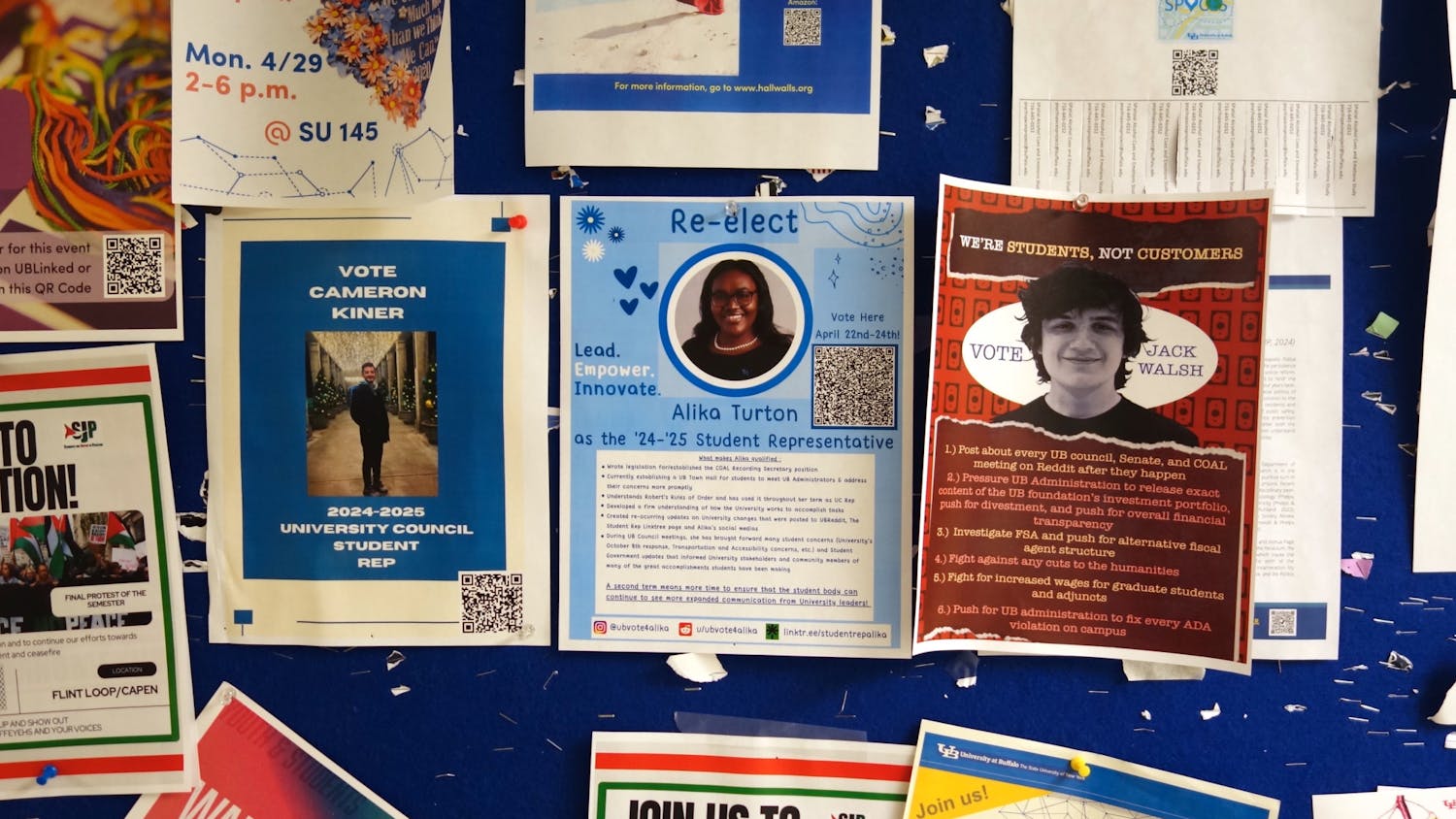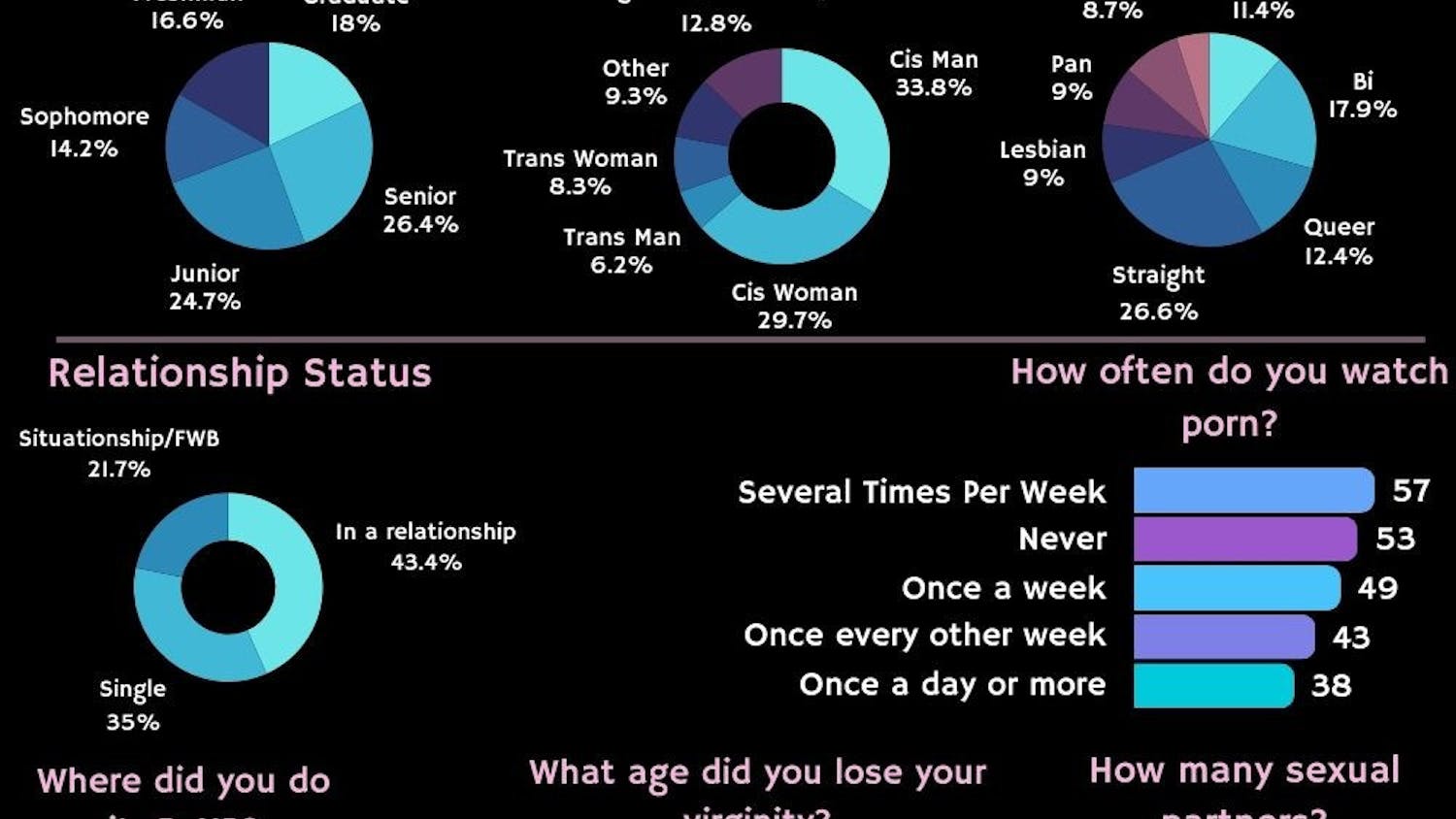Professors are still allowed to profit by selling self-published textbooks to their students despite a resolution passed nearly two years ago that attempted to end the practice.
UB’s Faculty Senate approved the resolution in 2015 but President Tripathi has yet to sign it.
The resolution requires professors to make a charitable contribution equal to the profits made when their students are required to buy the professors’ self-published materials. Profits include certain royalties and the money made from offering books in person for either a reduced or marked-up cost, compared to buying it from a bookstore.
The two-year anniversary of the resolution’s passing is coming up, but the resolution is not listed on the Faculty Senate’s website and hasn’t been officially put into effect.
Faculty Senate Chair Philip Glick said the resolution has not been put on the backburner, but legal issues have prevented the Senate from officially publishing the resolution.
“After [a resolution] leaves the Faculty Senate, there’s a resolution reconciliation process before they can be signed and formed into a policy,” Glick said. “The Faculty Senate was really looking out for the benefits of the students for this. This worried the faculty, materials being exchanged at the front of a classroom, the ethics of that were terrible so we brought this back to the Faculty Senate for further discussion.”
The Faculty Senate suggested the resolution before Glick was chair. When he took over, Glick sought to address issues with the first version, primarily focusing on the requirement that faculty who benefit financially from their work give the proceeds to a charity.
“There were some legal issues as to whether we can force professors to donate that much money,” Glick said. “We discussed that issue again in March 2016 with the provost and we determined that wasn’t the biggest issue. We’re more focused [on] making sure students don’t pay for textbooks and materials in class on top of their tuition and other materials.”
Glick said he encourages professors to take advantage of the Open SUNY Textbook program, an online database of textbooks that is cost-friendly to students.
Don McGuire, an adjunct professor in the classics department, teaches Latest News from the Ancient World, a rework of the old World Civilizations program. McGuire uses his self-published textbook of the same name for his class. The required textbook costs between $100 and $120.
McGuire said he is fully aware of the textbook resolution but knows that it was never put into effect. He checked the Faculty Senate’s website before the semester, he said, to make sure he was practicing within university regulations but found nothing.
McGuire wrote his own textbook after having an unpleasant experience teaching World Civilizations with a mediocre textbook, he said. Instead of only using parts of the material that applied to the course, McGuire decided to cut down the material and only included what was being taught in his class.
“Students would be in my class and I’d say, ‘Read these pages, but don’t pay attention those pages,’ and the control of information is just a really difficult thing to regulate,” McGuire said. “So, over the course of a couple years when I had a lot of time on my hands I sat down and started writing my own chapters and what I came up with is something that I was happy with and gives students a clean, more compact, better written way to navigate through all these cultures.”
McGuire has developed his book to the point that he plans on working with a publisher to expand and offer it on other campuses. As he expands his books, McGuire makes sure that the students are benefitting from his text, he said.
Copies of McGuire’s book are offered on reserve at the library and if students can prove they are in need of financial assistance, a free code for the book is distributed.
“The Faculty Senate never passed their resolution, but I’ve been conforming with their guidelines,” McGuire said. “Students can share copies of the text. There’s nothing on the textbook website that requires each student to have their own copy. I’m quite comfortable with supporting my students.”
McGuire is an adjunct professor, meaning he doesn’t get the full-time salary or benefits that a tenured professor receives. He feels the money he makes from royalties isn’t a significant amount and does not donate any of the proceeds from his textbook sales to a charitable fund, but feels that he doesn’t need to.
“I don’t know if we have to go that far. I’d be comfortable being told that we have to use funds from my course to apply to further research,” McGuire said. “There’s no Maserati parked outside based on my textbook [royalties].”
When Glick learned the resolution wasn’t on the Faculty Senate’s website, he said he was shocked and that it was “a wake-up call” to prioritize the issue again.
“In light of the many issues we’ve been having lately, we want transparency,” Glick said. “That really bothers me. We try to keep [the website] as current and relevant as can be; there was no intent in removing it.”
Alice Adachi-Bartholomay, a freshman pharmacy major, said she is frustrated with the cost of her books and materials for her first semester of college.
She understands professors write and sell their own material, but would prefer that money go to a charitable source rather than their own pockets, she said.
“That's a scam,” Adachi-Bartholomay said. “Even if books are reduced, it's still written by them. My tuition isn't enough? Books are expensive. I’m still paying for housing and tuition on top of lab materials.”
Correction: The original article stated President Satish Tripathi signed the resolution in the early fall of 2015.
Max Kalnitz is the senior features editor and can be reached at max.kalnitz@ubspectrum.com





